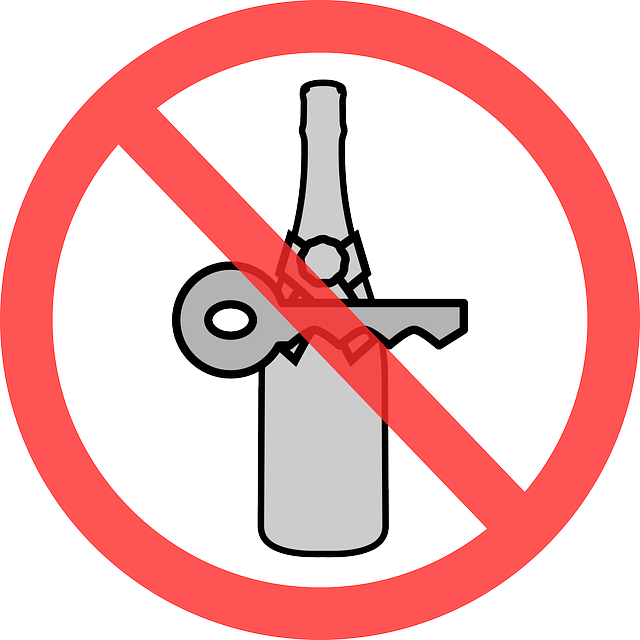Mental health issues significantly impact driving safety in the ride-sharing industry, leading to slower reaction times, difficulty concentrating, and increased risk-taking, especially in dynamic urban environments. Ride-sharing companies play a crucial role in mitigating these risks by implementing rigorous driver screening processes, offering mental health resources, and promoting open conversations about well-being. They must prioritize mental health assessments, support services, self-care initiatives, and transparent communication to enhance driver accountability, improve road safety, and safeguard both drivers and passengers from impaired driving due to mental health concerns.
In today’s on-demand transportation landscape, ensuring safe driving practices among ride-sharing drivers is paramount. This article delves into critical aspects of driver accountability, focusing on mental health’s impact on road safety and impaired driving. We explore the responsibilities of ride-sharing companies in maintaining a secure environment, examining legal implications and regulations. Additionally, we highlight strategies to promote drivers’ mental well-being and best practices for gauging fitness and responsiveness, aiming to mitigate risks associated with mental health and impaired driving.
- Understanding the Impact of Mental Health on Driving Safety
- The Role of Ride-Sharing Companies in Driver Accountability
- Legal Implications and Regulations for Impaired Driving
- Promoting Mental Well-being Among Ride-Sharing Drivers
- Best Practices for Ensuring Driver Fitness and Responsiveness
Understanding the Impact of Mental Health on Driving Safety

Mental health plays a significant role in ensuring driving safety, particularly within the ride-sharing industry. Drivers experiencing impaired mental health may face challenges that affect their ability to operate vehicles safely. Conditions such as anxiety, depression, or post-traumatic stress disorder (PTSD) can lead to reduced reaction times, difficulty concentrating, and increased risk-taking behaviors while behind the wheel. These issues are further exacerbated in dynamic urban environments where ride-sharing drivers navigate through heavy traffic, complex routes, and constantly changing road conditions.
Understanding the impact of mental health on driving safety is crucial for identifying potential risks and implementing support systems. Ride-sharing companies have a responsibility to screen drivers, provide access to mental health resources, and foster an environment that encourages open dialogue about mental well-being. By addressing mental health concerns proactively, these platforms can enhance driver accountability, improve road safety, and ultimately protect both drivers and passengers alike.
The Role of Ride-Sharing Companies in Driver Accountability

Ride-sharing companies play a pivotal role in ensuring driver accountability, particularly regarding mental health and impaired driving. These platforms are responsible for implementing robust screening processes to verify driver fitness and well-being. Regular mental health assessments and background checks can help identify potential issues that may impact a driver’s ability to safely operate a vehicle.
Moreover, these companies must establish clear policies and protocols to address any concerns related to driver impairment. This includes prompt action on reports of unusual behavior or suspected substance abuse. By fostering an environment that encourages open dialogue about mental health and promotes responsible driving practices, ride-sharing companies can significantly enhance safety for both drivers and passengers.
Legal Implications and Regulations for Impaired Driving

The legal implications and regulations surrounding impaired driving, especially in the context of ride-sharing services, are stringent and designed to ensure public safety. When a ride-sharing driver operates under the influence of alcohol or drugs, it not only compromises passenger security but also invites severe legal consequences. These penalties can include hefty fines, license suspension, or even imprisonment, depending on the jurisdiction and the extent of the impairment.
Mental health is an increasingly recognized factor in discussions around impaired driving. Issues like stress, anxiety, or depression can impact a driver’s ability to make safe decisions while behind the wheel. Ride-sharing companies are implementing measures to address this by mandating regular mental health checks for drivers and providing resources for support. Such initiatives not only promote accountability but also contribute to a healthier driver population, ultimately enhancing road safety.
Promoting Mental Well-being Among Ride-Sharing Drivers

Maintaining mental well-being is an often overlooked aspect in the ride-sharing industry, despite its significant impact on driver performance and safety. With drivers facing varying work schedules, long hours on the road, and constant interaction with diverse passengers, managing stress and promoting a healthy mindset are essential to prevent impaired driving due to mental health issues. Companies and regulatory bodies must prioritize driver mental health by implementing support systems such as accessible counseling services and peer-to-peer support networks.
Creating a culture that encourages open conversations about mental health can help drivers feel supported and less inclined to isolate themselves, which is a common trait among those struggling with their mental state. Regular breaks during shifts, along with flexible work arrangements, can also contribute to improved mental well-being. By addressing these factors, the ride-sharing industry can foster a safer environment for both drivers and passengers, ensuring that mental health does not become a barrier to safe driving practices.
Best Practices for Ensuring Driver Fitness and Responsiveness

Maintaining a high standard of driver fitness and responsiveness is paramount in ride-sharing services to ensure passenger safety. Regular mental health assessments should be conducted to identify any potential issues that could impact a driver’s ability to perform their duties safely. These checks can help detect stress, anxiety, or depression, which are significant factors in impaired driving. By prioritizing mental well-being, companies can create a culture of accountability and reduce risks associated with operator fatigue and distress.
Best practices include implementing comprehensive training programs that educate drivers about the signs of mental health struggles and encourage open dialogue about personal challenges. Additionally, providing easy access to support services and promoting self-care initiatives can empower drivers to seek help without fear of stigma or repercussions. Regular performance evaluations, peer feedback mechanisms, and transparent communication channels further enhance driver accountability, fostering a safe and supportive work environment.
In conclusion, enhancing ride-sharing driver accountability is a multifaceted approach that necessitates addressing mental health concerns, implementing robust company policies, understanding legal frameworks, and fostering drivers’ well-being. By prioritizing these aspects, the industry can significantly improve driving safety, especially in relation to mental health and impaired driving issues, ultimately benefiting both drivers and passengers alike.






